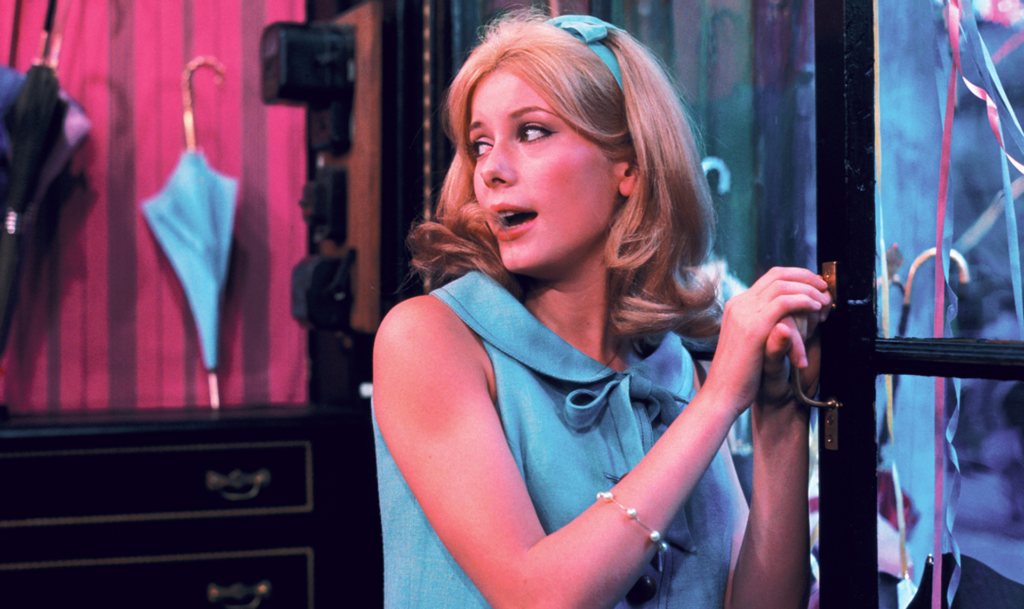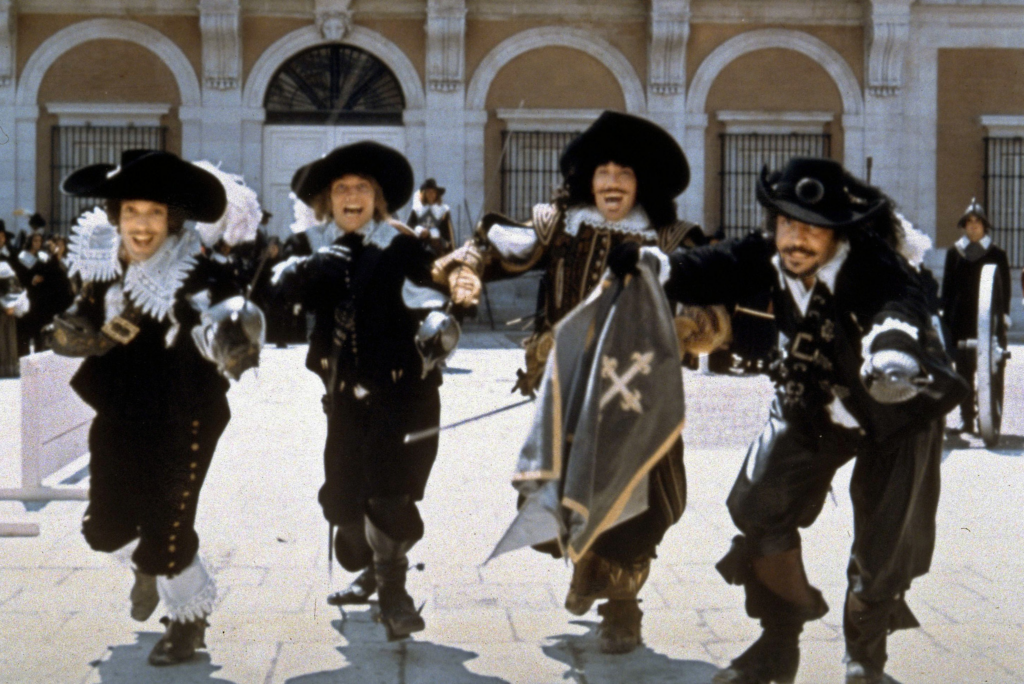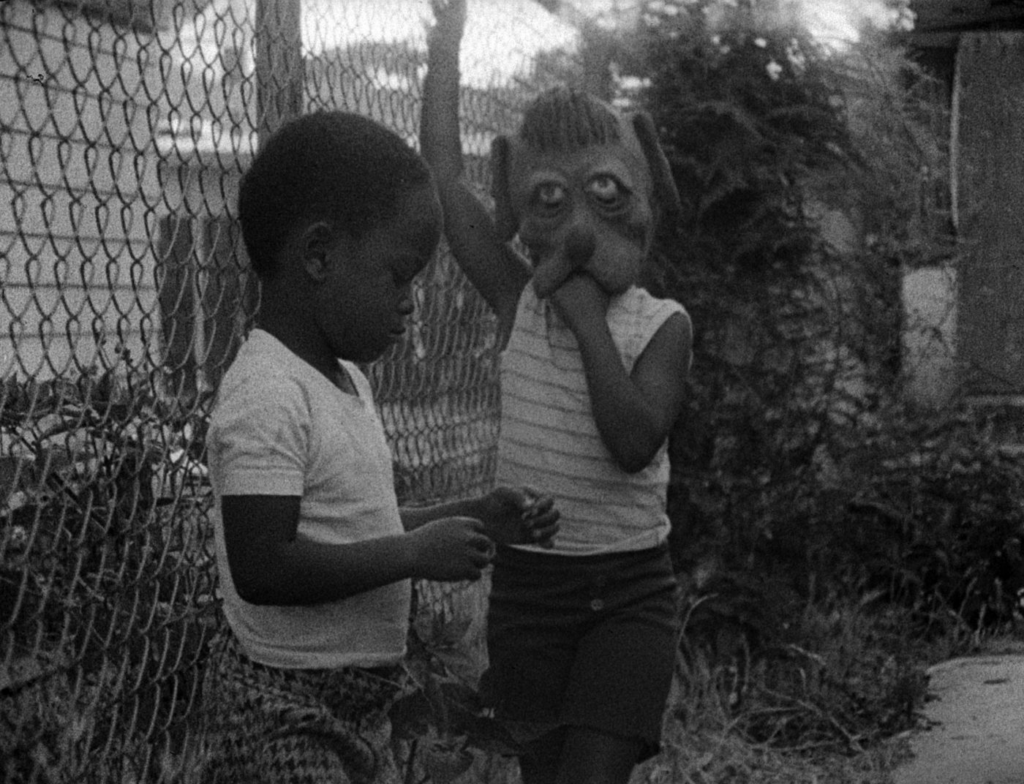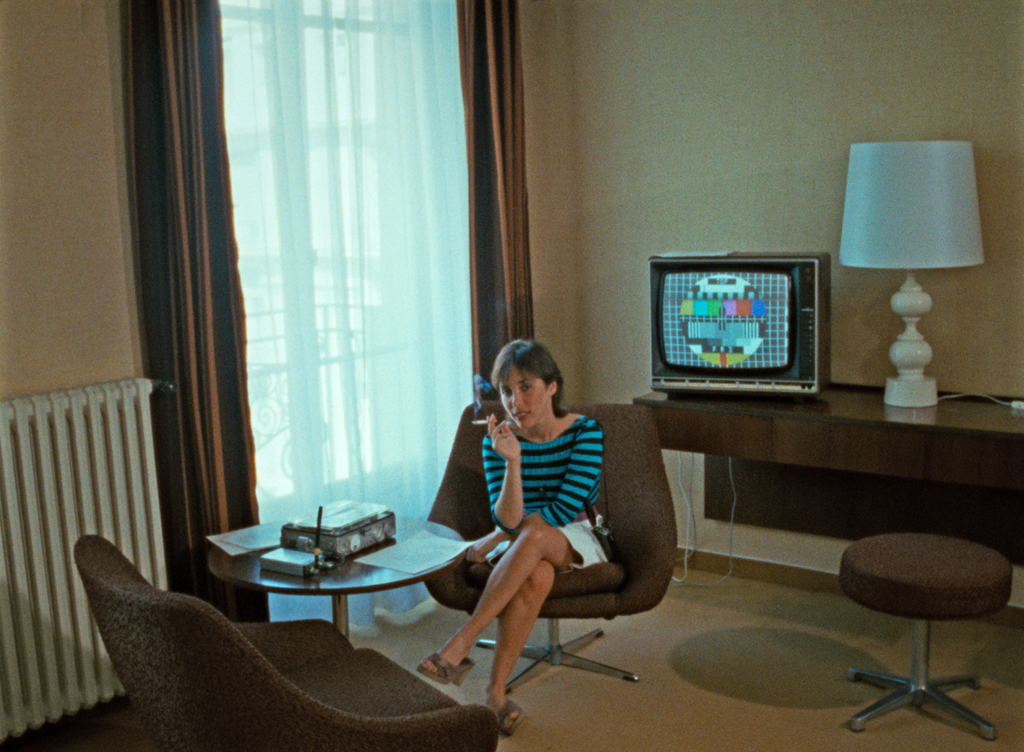We are accelerating towards the summer and May is jam-packed with releases. How jammed? Do ten films fill your taste buds for movies? Yes, ten. We have two pairs of films coming out together while four are new re-releases, two of which come from a single director. New releases come from Iran’s master of the camera, a student film that introduced the world to a unique Black voice, a two-part adaptation of a classical French story, a single question put to film directors 40 years ago and more recently about the state of cinema.

The Umbrellas of Cherbourg (1964)
Jacques Demy’s masterpiece gets its own 4K re-release with this musical of love and heartbreak accompanied by Michel Legrand’s beautiful score. Catherine Deneuve and Nino Castelnuovo are lovers who are suddenly separated and are finally reunited, only after they find love with other people. It’s a colorful film, sung through with a lot of heart, capturing the quick change of youthful love to maturity even as the connection remains the same. Demy won the Palme d’Or and would follow it up with future colorful tales of love and fantasy with The Young Girls of Rochefort and Donkey Skin.

In The Heat Of The Night (1967)
The second 4K re-release is Norman Jewison’s Best Picture-winning cop drama in the heart of Mississippi with a Philadelphia detective (Sidney Poitier) who partners with a racist sheriff (Rod Steiger) to solve a homicide. Set fresh after the Civil Rights era, the unlikely duo get through the town’s indignation of a Black man of authority to solve the crime quickly, made famous by a slapback from Poitier. It won Steiger the Oscar for Best Actor and the film itself took Best Picture; In The Heat Of The Night remains a standout film of the times, many years later.

The Three Musketeers / The Four Musketeers (1973-1974)
Directed by Richard Lester (A Hard Day’s Night), this adaptation of Alexandre Dumas’ legendary novel features an amazing cast including Michael York, Oliver Reed, Frank Finlay, Richard Chamberlain, Raquel Welch, Faye Dunaway, Geraldine Chaplin, and Charlton Heston. By making it two films (it wasn’t supposed to be; the film’s length forced a change to make it two parts), Lester allows the story to breathe and open up more with dazzling fight scenes and charm that makes it a brilliant epic and arguably the best adaptation of this classic tale.

Killer of Sheep (1977)
Charles Burnett’s debut feature is set in the Los Angeles neighborhood of Watts, following a Black family’s hard life told in various episodes. Like David Lynch’s Eraserhead, Burnett’s film was made as a school project, which took a few years to film and edit (he was both editor and cinematographer), but the final product is a big slice of neo-realism. In black & white, Burnett made himself a standout on the indie scene with a lengthy career on film and TV, namely another film already part of Criterion, To Sleep With Anger.

Withnail And I (1987)
“We went on holiday by mistake!” This brilliant cult comedy from Bruce Robinson uses moments from his own life and Richard E. Grant and Paul McGann are a pair of struggling actors who go away from gloomy London…and go to a gloomier place. Dealing with an eccentric wealthy uncle (Richard Griffiths) and the desire to make sure the alcohol keeps flowing regardless of where they are, the two must survive all the greyness and keep their friendship intact without killing each other.

How To Get Ahead In Advertising (1989)
Two years after Withnail, Robinson and Grant collaborated again with the satire of Thatcherist capitalism compared to the drama of Oliver Stone’s Wall Street. Grant’s mentally unstable Badgley has a crisis at work with the ethics of advertising, and a boil forms on him, turning into a secondary version of himself, one that is unscrupulous in business. Like Withnail, How To Get Ahead In Advertising was not well-received upon release, but it has also turned into a cult comedy in the same way another work-related satire, Office Space, would also become when released years later.

The Wind Will Carry Us (1999)
The latest addition from Iranian master Abbas Kiarostami follows a documentarian who goes to a village to see funeral preparations for an elderly woman who has yet to die. As they wait, he connects with the villagers while constantly getting calls back home with his old cellular, the only link to his life. It is a story about rural Iran and Kiarostami’s adoration for traditions despite a growing modern country and the continuing divide on lifestyles there.

Room 666 / Room 999 (1982 & 2023)
A double-feature set forty years apart are documentaries that question contemporary filmmakers on the status of the industry they work in, and if it is serious peril. Wim Wenders directed 666 and put that question to Michelangelo Antonioni, Rainer Werner Fassbinder, Jean-Luc Godard, and Steven Spielberg among others. For 999, the question was asked by Lubna Playoust to Wenders himself as well as David Cronenberg, Claire Denis, Lynne Ramsey, and Asghar Farhadi. “Is cinema a language about to get lost, an art about to die?” There are many answers to this very question, especially at this point.
Follow me on BluSky: @briansusbielles.bsky.social





